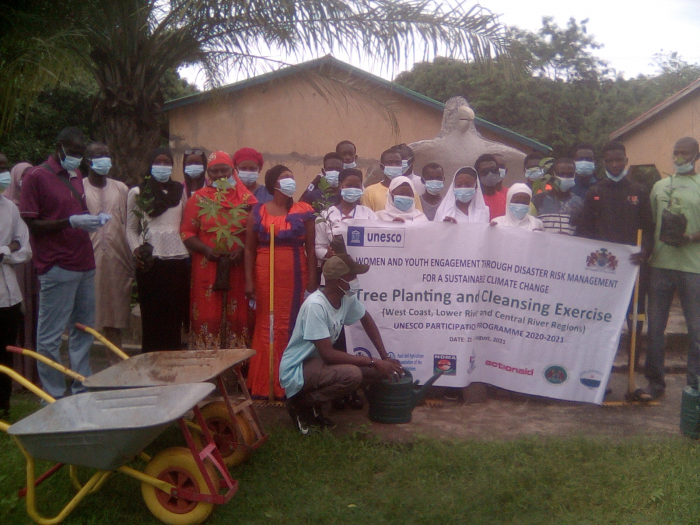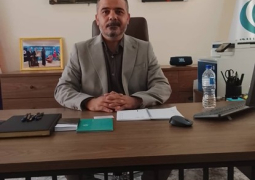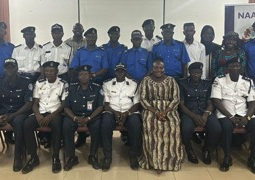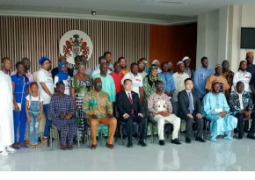
The tree planting exercise at UNESCO’s Association Schools Network (ASP Net) and UNESCO club schools includes KinderDorf Bottrop Technical Upper and Senior Secondary School in Brikama Kombo, Brikama Lower Basic School, Tujereng Upper and Senior School and Abuko Upper Basic School.
The trees planted include Mangoes, Lemon, Pawpaw, Moringa, Cashew nuts among others.
The exercise seeks to preserve the fast depleting country’s green environment and contribute to reducing climate change.
Maimuna Sidibeh, principal programme officer for UNESCO-Gambia office, explained that the project is aimed at mitigating environmental challenges in the country like other African countries are going through.
She reminded that women and youth are more vulnerable to environmental challenges; thus UNESCO deems it necessary to engage women and youth, especially students and mothers clubs to protect the environment.
“Trees are important in giving lives and without trees we cannot breathe. Without enough trees there would be no sufficient rainfall in the country and deforestation is a contributing factor of erratic rainfall in the country.”
She advised the school administrations to take good care of the trees to ensure their survival, while commending all heads teachers, students and mother clubs for their participation in the exercise.
Lamin Jarju, programme officer for UNESCO underscored the importance of trees, which he said, are significant in ensuring regular rain fall.
“Before the Gambia used to have six months of rainfall but we are not having that now because of the frequent cutting of trees. The Gambia has many laws that safeguard trees. The forestry Act states that let no one cut trees and if someone is making sure he or she should take permission from the Department of Forestry.”
Buba Jallow, vice principal 2 of KinderDorf Bottrop Technical Upper and Senior Secondary School in Brikama Kombo, expressed delight with the exercise. He said the trees are important in providing food and medication for people.
“Trees also induce rainfall and they serve as wind breakers. This is what we always teach our students,” he said.
Mustapha Jarja, head teacher of Brikama Lower Basic School described the initiative as crucial in the development of any country.
“Tree planting is life growing. Trees will maintain clean and control run of water to minimise erosion. We will also nurture the trees so that they benefit the young ones.”
Read Other Articles In National News




